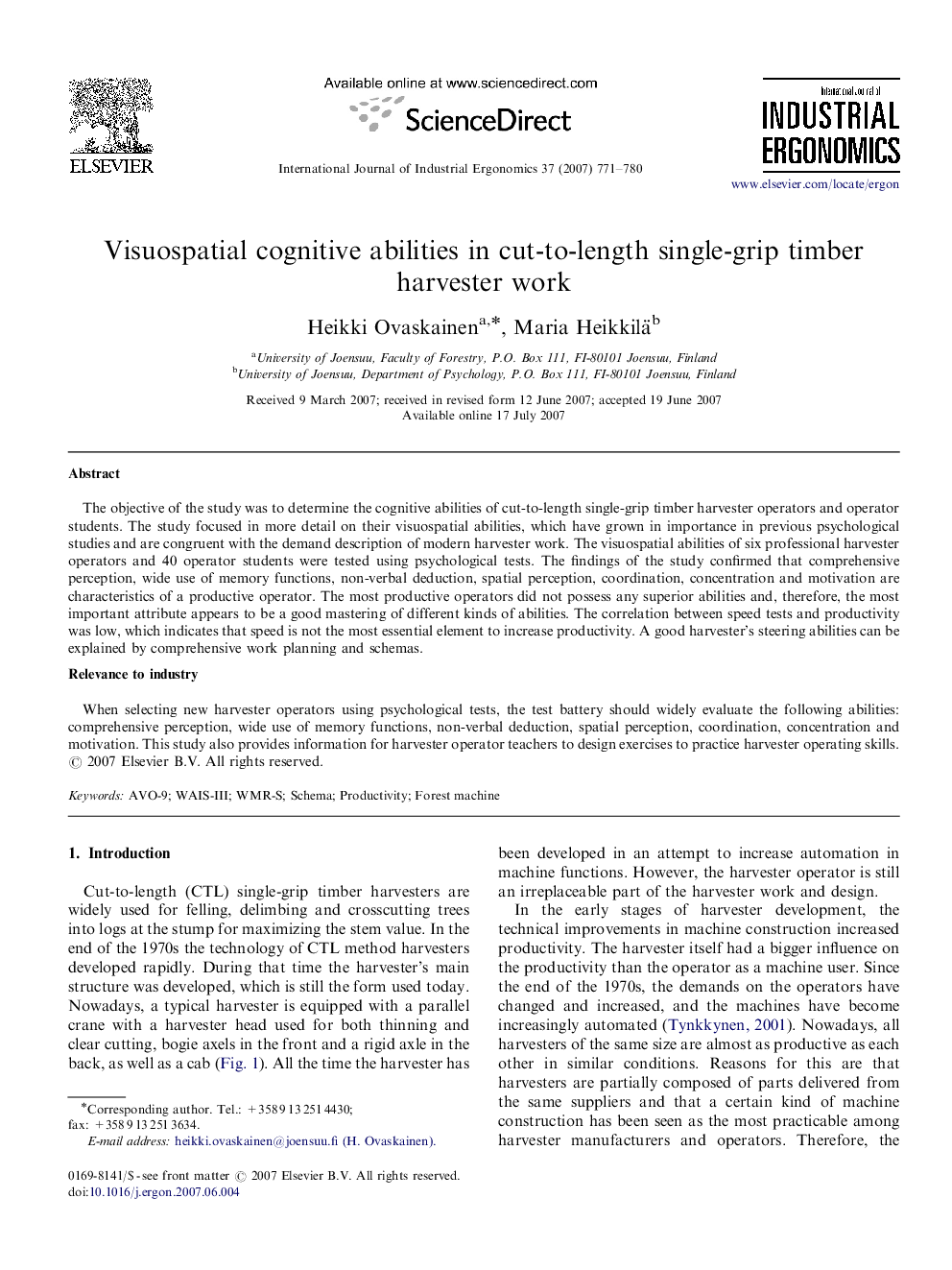| Article ID | Journal | Published Year | Pages | File Type |
|---|---|---|---|---|
| 1096932 | International Journal of Industrial Ergonomics | 2007 | 10 Pages |
The objective of the study was to determine the cognitive abilities of cut-to-length single-grip timber harvester operators and operator students. The study focused in more detail on their visuospatial abilities, which have grown in importance in previous psychological studies and are congruent with the demand description of modern harvester work. The visuospatial abilities of six professional harvester operators and 40 operator students were tested using psychological tests. The findings of the study confirmed that comprehensive perception, wide use of memory functions, non-verbal deduction, spatial perception, coordination, concentration and motivation are characteristics of a productive operator. The most productive operators did not possess any superior abilities and, therefore, the most important attribute appears to be a good mastering of different kinds of abilities. The correlation between speed tests and productivity was low, which indicates that speed is not the most essential element to increase productivity. A good harvester's steering abilities can be explained by comprehensive work planning and schemas.Relevance to industryWhen selecting new harvester operators using psychological tests, the test battery should widely evaluate the following abilities: comprehensive perception, wide use of memory functions, non-verbal deduction, spatial perception, coordination, concentration and motivation. This study also provides information for harvester operator teachers to design exercises to practice harvester operating skills.
